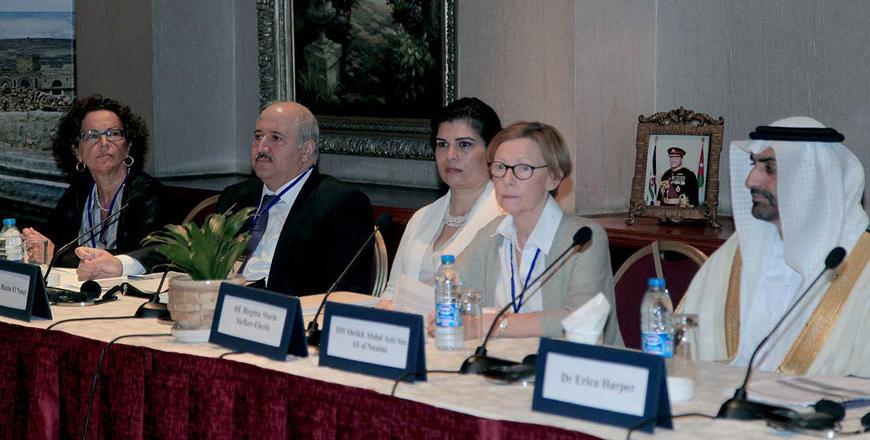You are here
Linking sustainability to spirituality an ‘effective’ strategy — experts
By Laila Azzeh - Oct 13,2015 - Last updated at Oct 13,2015
AMMAN — In regions where religion plays an integral role in shaping societies, drawing on religious institutions to inculcate better energy conservation practices can be the “wisest” strategy, experts highlighted on Tuesday.
Linking sustainability to spirituality has proven to be “very effective” in influencing change among the mainstream as seen in the German Development Agency’s (GIZ) experience, according to Peer Gatter from the agency.
“Why does the GIZ work with Islamic actors? We get this question a lot. For many decades, we have worked with Christian organisations in Africa and Latin America and it worked.”
“Religious actors enjoy long-term cooperation with local people and therefore, we should build trust with these entities and show them that we do not have hidden agendas,” Gatter added.
He made his remarks on the second day of a conference organised by the West Asia North Africa (WANA) Institute on the environmental Sustainable Development Goals.
The two-day event, which concluded on Tuesday, was carried out in cooperation with GIZ and the Swiss Agency for Development and Cooperation.
Noting that Islamic figures are very “influential” in their communities, Gatter cited a project implemented by GIZ in Algeria which introduced biodiversity awareness lessons in mosques and religious schools, reaching more than 400 educational institutions.
Awqaf Minister Hayel Dawood also cited an initiative implemented by the German agency in Jordan to change behaviours towards sustainability.
Rainwater harvesting techniques, recycling of greywater and installing water-saving devices at mosques are the pillars of the project, which seeks to reduce water consumption and cut down on mosques’ water bills, which stand at JD2 million per year, Dawood noted.
The project, he added, has reached 6,500 mosques across Jordan so far.
However, former Palestinian minister of water Shaddad Attili said the issue of water in the region cannot only be addressed by Islamic scholars conserving water during ablutions.
“The water situation in almost the entire region is a tragedy by itself. This issue should be taken seriously as an Arab security issue that threatens the well-being of nations and not as an issue of being careful with water during ablutions,” he said.
Known as the “Green Sheikh” in the UAE, Sheikh Abdul Aziz Bin Ali Al Nuaimi, environmental adviser of the Ajman government, highlighted his experience in raising awareness on environmental and sustainable issues.
He noted that Jordan has the potential to become the “heart of innovation in the Middle East, but needs support”, adding that there are “many young Jordanian people who have great innovations in the area of renewable energy”.
Related Articles
AMMAN — Three mosques categorised as large water consumers will be turned into “examples of water efficiency” under a new project to reduce
Awqaf Minster Hayel Dawood on Monday denounced daily attempts by Zionist and Jewish extremists to desecrate Al Aqsa Mosque.
AMMAN — Experts said on Monday that pressing regional environmental challenges, including water insecurity, climate change and arid lands ma

















